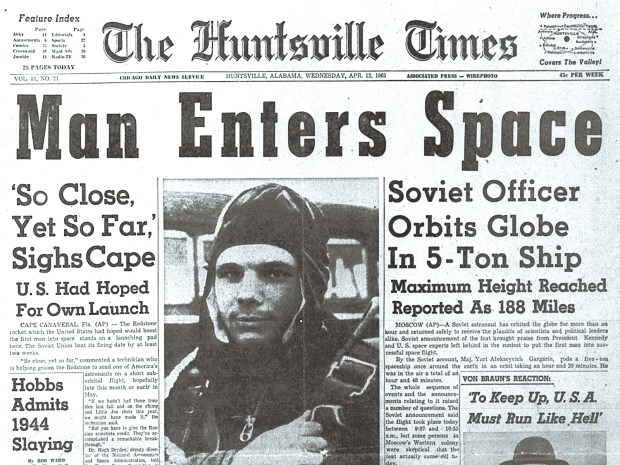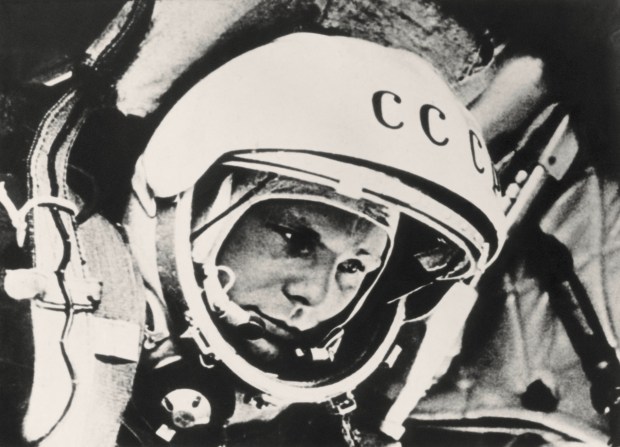On April 12, 1961, Major Yuri Gagarin became the first man to visit space. Aboard the Vostok space capsule, which took off from the Baikonur space base in Kazakhstan, the Russian completed a full orbit around the Earth in 108 minutes, crossing the vacuum of space at over 27,000 km/hour.

Messages from space
In flight, he transmitted a famous message to Earth: "From here, the Earth is beautiful, without borders or limits." Later, the cosmonaut was reported to have uttered another sentence from space: "I don’t see any God up there.” As his shuttle re-entered the atmosphere, he ejected and landed on the banks of the Volga.
The Holy See reacted to the event in the next day's edition of L'Osservatore Romano. The task was an uncomfortable one: It had to salute an undeniable Communist victory, while yielding nothing to the atheistic thinking of Moscow, which was quick to make Gagarin a herald of materialistic science. The task was entrusted to Raimondo Manzini, a former Christian Democrat deputy who had become director of the Pope's journal at the request of John XXIII in 1960.
The Vatican’s reaction
"A new scientific conquest or leap forward in technology revives the superior image of man as a spiritual creature, endowed with reason and freedom, capable, according to the divine order, of an ever-greater domination over the external world: man in his path of perfection made in the image and likeness of God," wrote the journalist.
He seems to draw inspiration from the first quote from Gagarin to defend a peaceful conception of science, the fruit of international collaboration "without frontiers." Insisting on the importance of the cosmonaut's presence aboard Vostok 1, Raimondo Manzini lastly warns against the dangers of misusing these technological advances.
This commentary foreshadowed that of John XXIII on August 12, 1962, in a radio message that did not mention Gagarin by name. More strategically, the Pontiff waited to mention all the "space exploits" of his time, implicitly including the Americans Alan Shepard and John Glenn, who made it to space in May 1961 and February 1962.
The Italian pope underlines the enthusiasm that these space adventurers generate throughout the world, and particularly among young people. Then he exclaims, with tones that foreshadow the encyclical Pacem in terris:
"May these historic events, as they will be marked in the annals of scientific knowledge of the cosmos, become the expression of true and peaceful progress, a solid foundation of human brotherhood."

Khrushchev, not Gagarin
A statement not unlike the one Gagarin made from Vostok 1: "From here, the Earth is beautiful, without borders or limits." A sentence that was indeed uttered — contrary, according to the scientific community, to the second about the absence of God in space. In fact, no recording of this statement has ever been found, and the community of historians doubts that these words really existed, based on certain testimonies from people close to Gagarin. It would appear that these words were in fact taken from a speech Khrushchev gave to Party leaders a few days after Gagarin's flight.





